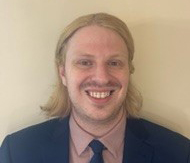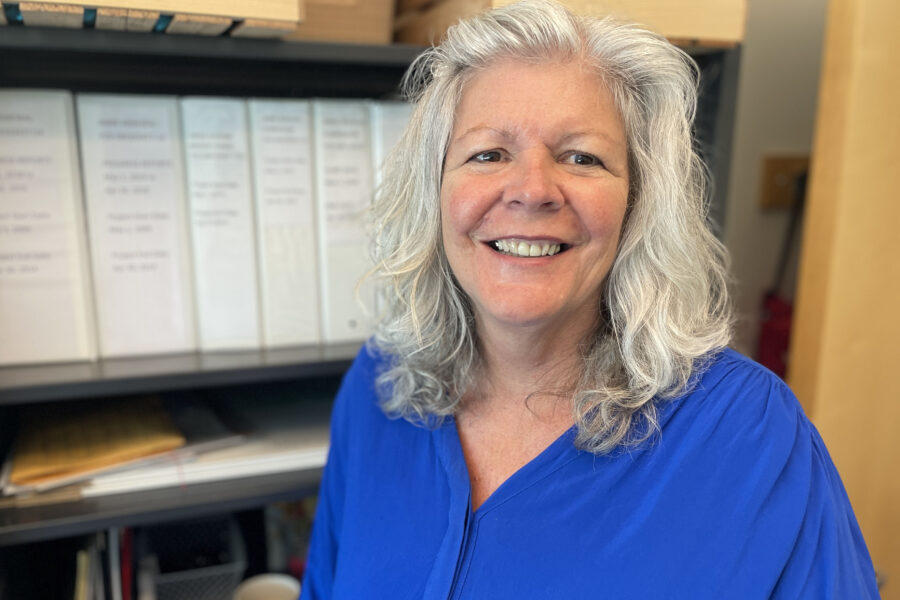Tami Houdesheldt says she’s not a science person.
But she loves the Nebraska INBRE (IDeA Networks of Biomedical Research Excellence) program.
Houdesheldt, who has been the NE-INBRE program associate for three years, just finished assisting principal investigator Paul Sorgen, PhD, in filing the National Institutes of Health grant request for another five-year extension of the grant, which UNMC has been receiving for 25 years.
No pressure, right?
Maybe not for Houdesheldt. She may not be a science person, but – with nearly 18 years of experience at UNMC and with the help of Micah Moravec of the UNMC Sponsored Programs Administration – she can handle putting a grant together.

Then again…
“This was my first time doing it,” she said with a laugh. “I was terrified. No pressure at all.”
Houdesheldt began putting material together for the May 2024 grant in January. The new request is for approximately $14 million over five years.
“We had lists of things that we needed, but things can change so much in a five-year grant cycle that it’s hard to get everything you’ll need so far in advance.
“Ideally, in any proposal, we hope for steady buildup and accumulation of materials as we get to the deadline,” she said.
But with a grant as far-reaching as NE-INBRE, Houdesheldt had to reach out to the participating institutions, get signatures from a variety of people, make sure all contracts were in place, prepare budgets.
Additionally, there were changes to the proposal, including the one Houdesheldt is most excited about – adding Nebraska Indian Community College to the new proposal to supply the institution with NE-INBRE research dollars and support.
Moravec said he began receiving material for the grant from Houdesheldt about a month ahead of the due date.
“Our role is to vet the application, make sure all the boxes are checked,” he said. “Essentially, we make sure that the application fits the instructions the granting organization supplies, and we also do some institutional checking to make sure that UNMC leadership is aware of and approves the submission,” he said.
Moravec said the multicomponent nature of the NE-INBRE grant can make it challenging.
“A multicomponent application is slightly different than normal applications,” he said. “The substance isn’t too different — it’s just more, almost like a bunch of applications glued together.
“But we have the institutional people who have dealt with this stuff specifically for years, and that’s helpful,” he said. “We also have specific people at the NIH who deal with our grant in particular, and we have constant contact with them.
“So that’s also very helpful and kind of relieves the pressure.”
Houdesheldt finds her work with NE-INBRE fulfilling.
“It’s cool to see the scholars’ excitement, when they go into the labs, when I ask them how things are going. That’s just fun.
“And we have a conference every August, where our first-year INBRE scholars present their research projects to the whole Nebraska INBRE community,” she said. “When I see them doing this, with their presentations so professional, it is so impressive. I’m happy to be a small part of their success.”
